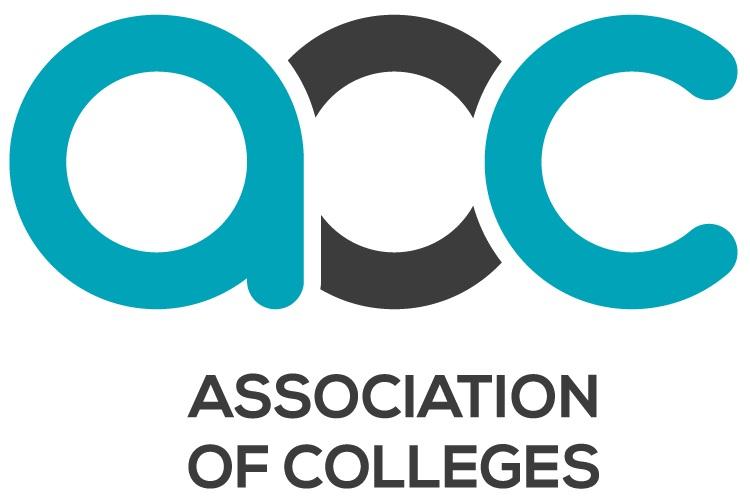Theresa May’s figures in today’s PMQs don’t add up, says AoC

“If Theresa May is serious about boosting the economy, building our communities and supporting individuals to get on, she needs to be honest about the problems faced and invest in a meaningful way – not just rehash old lines that have been shown to be wrong.”
The Association of Colleges – the membership body representing almost 93% of England’s further education colleges – refutes claims made by the Prime Minister in today’s PMQs.
In the Chamber, Labour MP for Makerfield, Yvonne Forvargue asked the PM:
“I’m privileged to have two award-winning sixth-form colleges in my constituency. However, with no increase in funding since 2010, Winstanley College has cut German A level from the syllabus and St John Rigby has drastically reduced pastoral support. Does the prime minister believe, like the chancellor, that these are just little extras or will she agree it’s time to raise the rate?”
To which the Prime Minister responded:
“Of course, if you look across what we’ve been doing in funding for education overall, we have been putting extra money into funding. Everybody says ‘not in FE’ – actually, in FE we’ve invested nearly £7 billion this year to make sure there’s an education or training place for every 16- to 19-year-old who wants one. We’re also transforming technical education through the T levels, and with £500 million a year once they’re fully rolled out going into that. And by 2020, the funding available to support adult participation in further education is planned to be higher than at any time in England’s history.”
The Association of Colleges says:
“What the Prime Minister said in the Chamber today does not reflect reality. She claims that by 2020 spending on adult education will be “higher than any time in our country’s history”. The reality is there will be £1 billion less in real cash terms than there was a ten year ago – and this has consequences.
In the last ten years, we have seen total enrolments for adults drop from 5.1m to 1.9m. A drop of 62%. Adult education is about ensuring that there are enough skilled people in work to deliver the country’s industrial strategy. Cuts to the adult education budget mean that there are less people skilled in professions vital for economic success now and in the future. That includes health and social care, construction, and engineering.
A recent report by the Children’s Commissioner also showed that real terms spending per student (16-18) will drop to the same level as it was 30 years ago, by the end of this decade. As a country, we will be spending the same amount of money per student (16-18) as we were in 1990 – despite costs rising with inflation.
Government needs to stop pretending that T level funding is the silver bullet that is going to fix everything. It isn’t. It’s a start. But it’s not enough, it doesn’t go far enough and it won’t cover the majority of people who need a strong further education offer.
And what cash there is for T levels will not be available until 2020 and will only be in 40 colleges and 17 schools. There are 266 colleges in England. The money alluded to is actually £400 million (not £500 million) and won’t be available until 2023. The Institute for Fiscal Studies made clear that this won’t come close to compensating for the money already cut from the 16 to 19 budget.
If Theresa May is serious about boosting the economy, building our communities and supporting individuals to get on, she needs to be honest about the problems faced and invest in a meaningful way – not just rehash old lines that have been shown to be wrong.”
The government has increased spending in some areas but we’re doubtful about this claim. Here’s why:
- Budgets don’t necessarily get spent. DfE doesn’t publish much information on its budgets, nor does it explain in simple terms whether it has spent the money allocated. DfE hasn’t published a skills funding letter for 18 months. The letter published in March 2017 sets out planned spending in 2019-20 of £4.7 billion, £0.9 billion of which is expected to go on 16-to-18 year old apprenticeships and £0.5 billion which is allocated for FE loans. Excluding these two items, the total is £3.3 billion. In the first year of the new apprenticeship levy (2017-18), DfE reported an £337 million underspend on apprenticeships in its most recent set of accounts, for 2017-18 (financial review, Page 46).
- The calculation appears to be confined to revenue spending. Including all types of spending, the Learning and Skills Council spent £5.5 billion in 2009-10 (see Skills Funding Agency 2010-11 financial statements, Page 55) on the same items that are in the skills funding letter (£4.8 billion if 16-to-18 apprenticeships are excluded)
- A comparison of cash spending ignores inflation. The Consumer Price Index is expected to rise by 22% over the decade. Government has also increased the costs it expected education and training providers to meet – for example higher pension contributions to cover past underfunding.
- The comparison chooses a version of adult education and training spending which just looks at the education department. Between 1980 and mid 1990s, government spent large sums on training for the unemployed via Manpower Services Commission and its successors. The historic peak might actually be 1993 but it is hard now to reconstruct budgets
- Likewise, a growing share of apprenticeships spending now goes on standards at Level 6 and above (eg degree and MBA apprenticeships).
- The comparison ignore changes in the population. England will have a historically high population in 2020 – about 3 million more people than in 2010.
- DfE publishes a lot of data but does not properly track key indicators like spending and funding on key programmes for different ages.

Responses